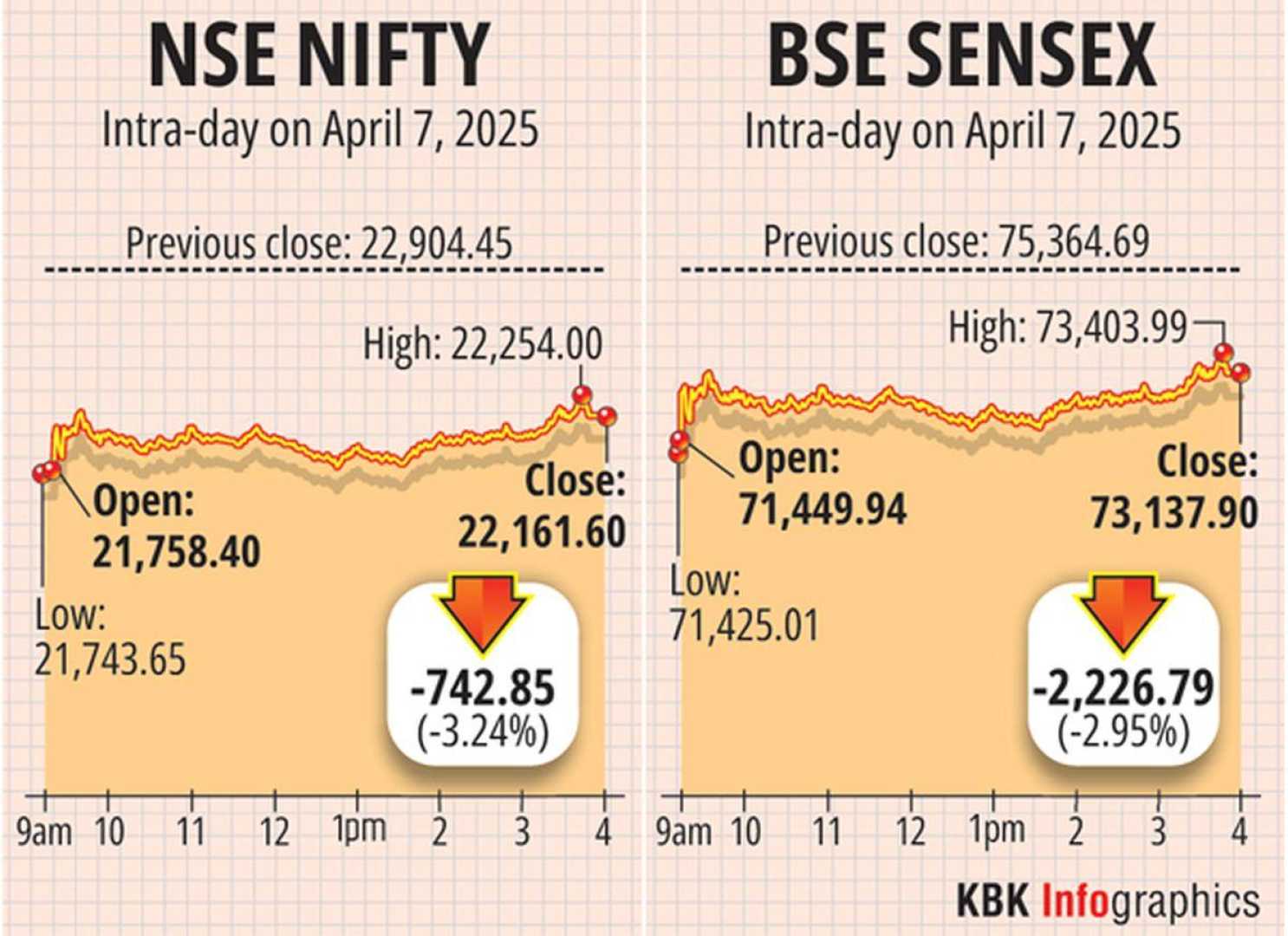Business
U.S. Stocks Tumble as Tariff Tensions Heat Up

NEW YORK (AP) — U.S. stocks experienced a significant downturn Tuesday, erasing early gains amid escalating trade tensions. The S&P 500 fell by 1.57% after a brief surge of 4.1%, marking its lowest point in nearly a year. The Dow Jones Industrial Average dropped 320 points, while the Nasdaq Composite slid 2.15%. This rapid shift from optimism to uncertainty underscores the fragile state of investor sentiment.
The downturn came on the heels of White House Press Secretary Karoline Leavitt announcing President Donald Trump’s plan to impose an additional 84% tariff on all Chinese imports, bringing the total tariffs on Chinese goods to 104%. The news quickly deflated the market’s earlier rally, which had been fueled by hopes of trade negotiations.
Market analysts noted that uncertainty about future trade policies is weighing heavily on investor confidence. “We’re not anywhere out of the woods yet, and so that sort of tempers things,” said Thomas Martin, senior portfolio manager at Globalt Investments.
As the indices struggled, the S&P 500 briefly dipped into bear market territory before closing down 18.9% from its February peak. The Dow is now down 16.4% from its all-time high, while the Nasdaq has fallen 24.3% from its December record.
The fear index, known as the VIX, surged amidst the chaos, indicating heightened anxiety among traders. The sentiment of “extreme fear” is reportedly influencing market behavior.
Analysts observed a potential buy opportunity given the S&P 500’s price-to-earnings ratio closing below 17, a historically low level. “This is a normal action after a shock period. The market is extremely oversold, and markets don’t move in a linear fashion,” commented Keith Lerner of Truist.
Trump’s projected tariffs are a continuation of his aggressive trade policy, which has already placed a significant burden on the economy. In a related statement, White House National Economic Council Director Kevin Hassett mentioned that the administration is fielding many requests for trade negotiations. “Two of our closest allies and trading partners, Japan and South Korea, are prioritized,” he said.
The chaotic environment in the stock market reflects uncertainties in the trade landscape, particularly as tariffs threaten to slow economic growth. Expectations of negotiations brought short-lived optimism, highlighted by Trump’s statements about discussions with South Korean Acting President, who he described as being ready for a potentially favorable trade deal.
However, uncertainty remains prevalent as China has already signaled its intention to retaliate against the tariffs. Memory of past negotiations linger in the minds of investors, especially given lost opportunities that could have fostered cooperation between the two nations.
Amid these developments, shares of big-box retailers and brands significantly reliant on Chinese imports faced steep declines. Ralph Lauren saw a 6.8% dip, while Best Buy fell 9.4% due to concerns over its dependence on Chinese supply chains.
Conversely, health insurers responded positively to favorable projections from the Centers for Medicare & Medicaid Services, with stocks like Humana rising 9.4% and UnitedHealth climbing 5%.
Overall, the stock market’s rollercoaster ride serves as a reminder of the volatility stemming from trade policies and investor expectations. As negotiations loom, fear continues to shape Wall Street’s landscape, leaving many investors apprehensive about the potential for a prolonged downturn.












